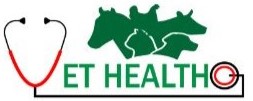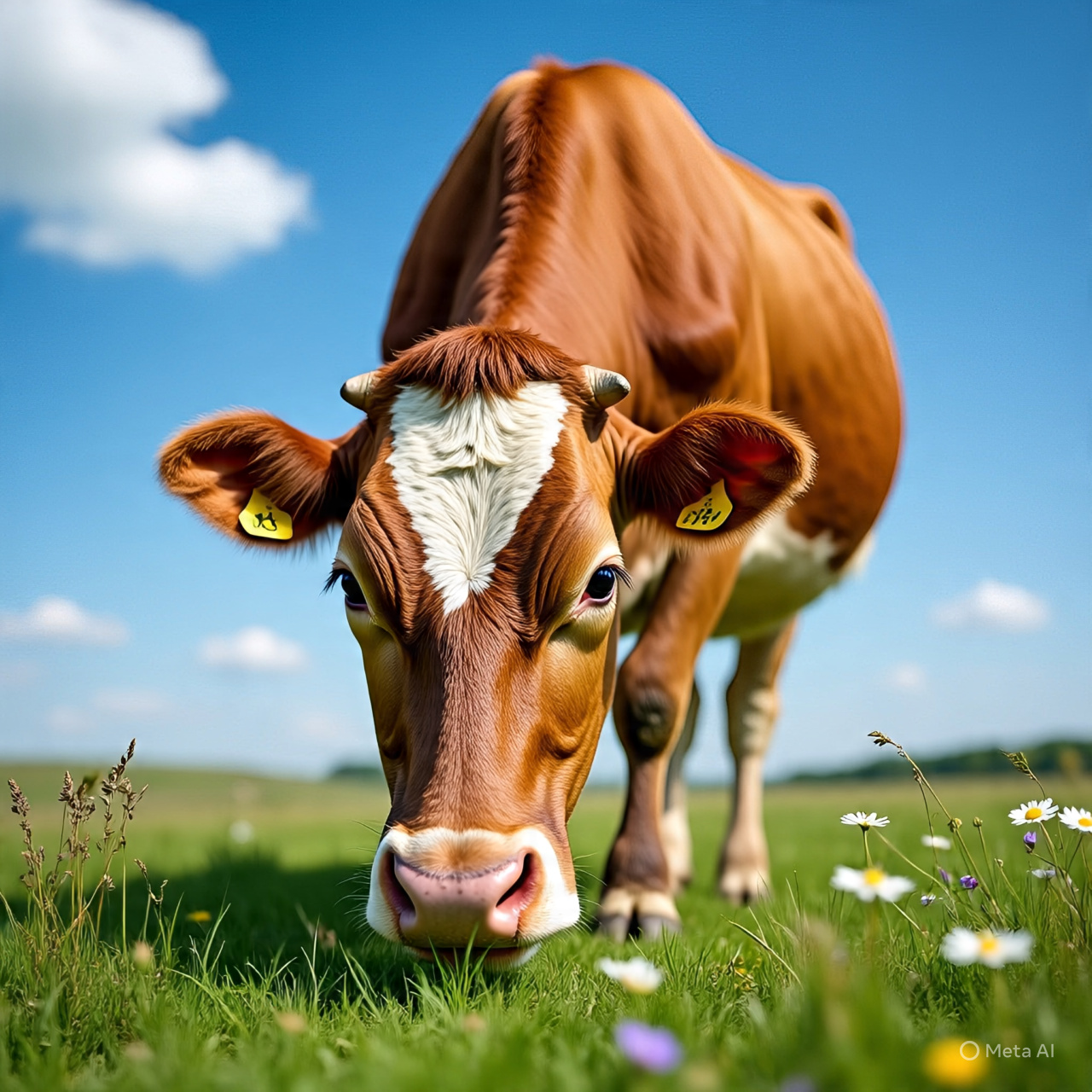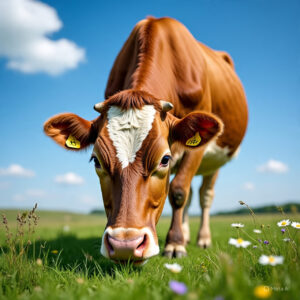🐄 Preventing Digestive Disorders in Cows: Healthy Herd Tips
Introduction
Preventing digestive disorders in cows is essential for herd health and milk output. Digestive issues harm dairy performance.
1. Common Digestive Disorders in Cows
- Bloat: Gas buildup in rumen
- Acidosis: Excess acid from rapid feed
- Diarrhea: Loose stools, fluid loss
- Indigestion: Poor rumen function
- Impaction: Blocked digestive tract
2. Balanced Diet and Ration
Provide a mix of roughage and concentrate. Use quality hay, silage, and grass.
Avoid abrupt feed changes.
3. Role of Fiber
Fiber supports rumen microbes. Improves chewing and saliva. Chewing maintains rumen pH.
4. Feeding Routine
Feed twice daily at same times. Provide clean water constantly.
Avoid feeding wet or spoiled feed.
5. Prevent Bloat
Use antifoaming agents in feed. Avoid feeding lush legumes early morning.
Offer fresh grass in small amounts.
6. Prevent Acidosis
Provide buffers like baking soda. Gradually increase concentrate.
Include probiotics in feed rations.
7. Watch Water Quality
Provide clean, fresh water.
Check water trough daily.
Avoid puddle or contaminated sources.
8. Maintain Clean Shelters
Clean cow sheds daily. Remove spilled feed promptly.
Use bedding that absorbs moisture.
9. Use Probiotics and Buffers
Add rumen-enhancing additives.
Use molasses or yeast cultures.
Include magnesium oxide if needed.
10. Monitor Cow Behavior
Watch for signs: reduced eating, bloated belly, discomfort, low milk.
Early detection ensures early treatment.
11. Veterinary Checkups
Call vet for regular exams. Monitor herd health monthly.
Vaccinate where applicable.
12. Mineral and Vitamin Supplements
Include salt blocks and minerals. Provide vitamin A, D, E supplements.
Balance calcium and phosphorus.
13. Fresh Pasture Access
Allow grazing on fresh, non-toxic grass.
Rotate pasture to prevent toxicity buildup.
14. Avoid Toxic Plants
Remove poisonous weeds in grazing areas.
Know regional plant dangers.
15. Feed Hygiene
Store feed in sealed, dry place.
Check regularly for mold or pests.
16. Transition Cows Carefully
During diet changes, adapt gradually.
Monitor during calving or lactation shift.
17. Training Farmers and Workers
Teach staff to spot early signs.
Ensure clean milking and handling routines.
18. Record Keeping
Maintain herd logs for feed, health, treatment.
It helps track patterns and prevent outbreaks.
Conclusion
Preventing digestive disorders in cows increases herd health and farm income.
Balanced feeding, hygiene, monitoring, and vet care are keys. Implement these practices for robust dairy operations.
Home | Food and Agriculture Organization of the United Nations




